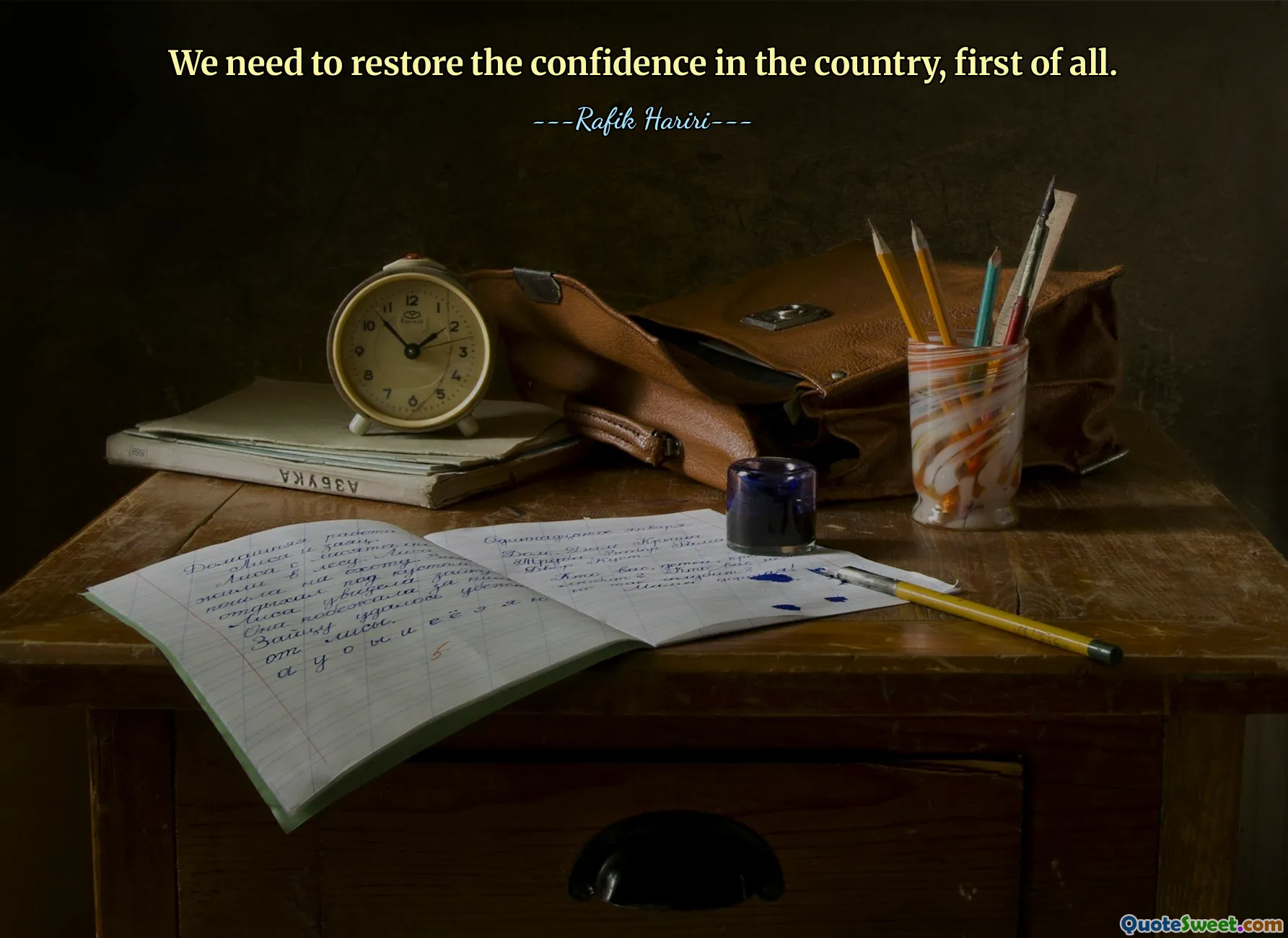
We need to restore the confidence in the country, first of all.
Restoring confidence within a nation is a foundational step toward rebuilding stability, prosperity, and social cohesion. When citizens place trust in their government, institutions, and each other, it creates a positive cycle that encourages investment, civic participation, and collective effort toward common goals. The process often begins with transparent communication, effective leadership, and policies that address the core concerns of the populace. Trust can be fragile, easily shattered by corruption, mismanagement, or unfulfilled promises. Therefore, restoring it requires consistent actions that demonstrate accountability and genuine commitment to public welfare.
A nation's confidence also depends on economic stability, security, and social justice. Economic downturns or social inequalities can erode trust if not addressed promptly and effectively. Leaders must work diligently to create an environment where people feel secure about their future, their rights, and their well-being. Rebuilding confidence is not an overnight task; it involves patience, perseverance, and an unwavering focus on the people's needs.
Furthermore, cultural and historical contexts influence how confidence is perceived and rebuilt, emphasizing the importance of understanding the unique circumstances of each country. It's about fostering belief that the country can provide opportunities and fairness for all its citizens. Ultimately, restoring confidence empowers citizens and leadership alike, paving the way for sustainable development, harmony, and progress.










